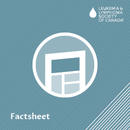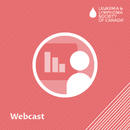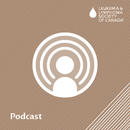Resource Library
Showing 1 to 10 of 333 results
Mastocytosis is a rare blood cancer where too many mast cells (white blood cells that help fight infection) build up in the body’s tissues and organs. There are 2 types: Cutaneous (skin) mastocytosis, and systemic mastocytosis, affecting internal areas such as live, spleen and GI tract.
Four LLSC-funded researchers discussing their ongoing projects looking at quality of life for people impacted by a blood cancer, moderated by LLSC Research Program Director Dr. Paul O'Connell.
This is the opening session of the 2025 Living Well with a Blood Cancer virtual conference.
This is the opening session of the 2025 Living Well with a Blood Cancer virtual conference.
A diagnosis of blood cancer can profoundly affect how we experience intimacy and sexuality—with ourselves and with others. In this webcast, Reanne Booker, nurse practitioner at the Arthur JE Child Comprehensive Cancer Centre, explores the emotional, physical, and relational changes that may arise during and after treatment.
Dr. Nicole Culos-Reed shares how physical activity, tailored to individual needs, can play a vital role in improving energy levels, emotional well-being, and overall quality of life.
Kylie Teggart, certified oncology nurse, Taylor Rhodes, clinical dietitian, Reanne Booker, oncology and palliative care nurse practitioner, and Tina Crosbie, hematology pharmacist discuss medication management, nutrition and symptom management.
Dr. SarahRose Black, PhD, registered psychotherapist and accredited music therapist, presents on tools and knowledge to address mental health in people impacted by a blood cancer, including anxiety, depression, stress, fatigue and cognitive problems.
Single mom Camille Leahy, diagnosed in 2020 with acute lymphoblastic leukemia (ALL), talks about her experience getting CAR-T as a successful last line of treatment. Dr. Sita Bhella discusses what is involved in the medical procedure, and the exciting progress in CAR-T in its manufacture and access in Canada.
An overview of what chemotherapy is, how it works, how it is given, side effects, and questions to ask your healthcare team.
Lymphoplasmacytic lymphoma (LPL) and its related condition, Waldenström macroglobulinemia (WM), are slow-growing subtypes of non-Hodgkin lymphoma.
Beyond active surveillance (the ‘watch and wait approach’) there are several CLL treatments to consider. Each treatment has different features and side effects. It is important to be comfortable with the CLL treatment you choose.


